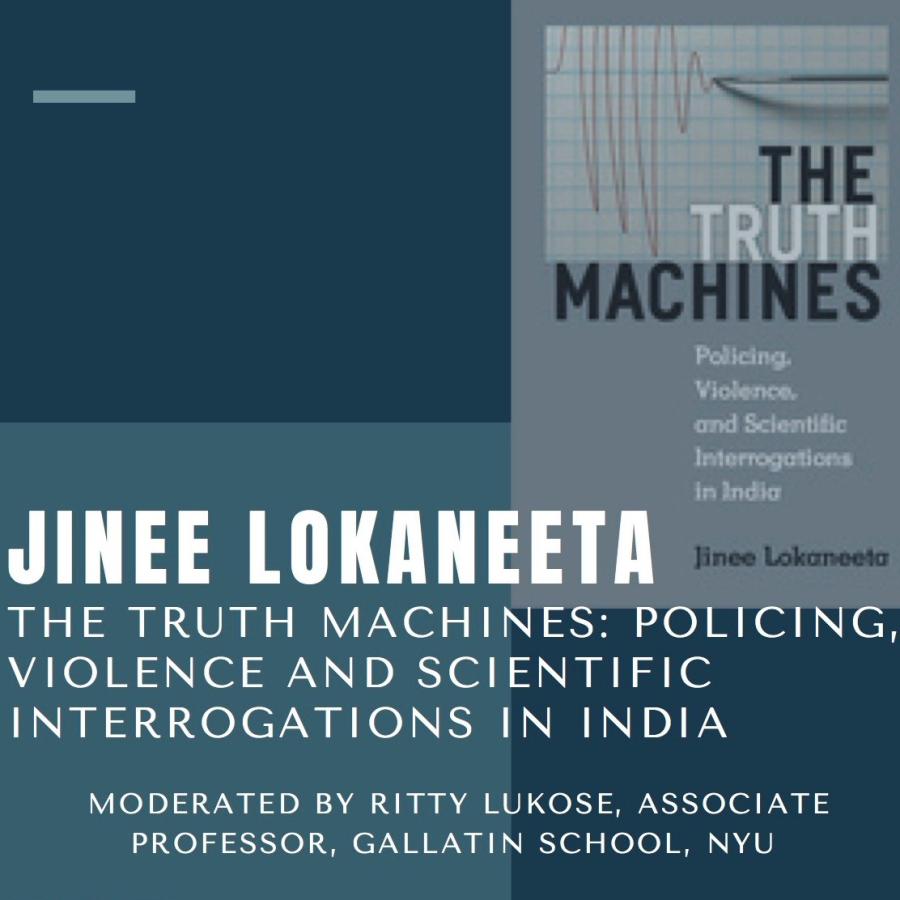The Truth Machines: Policing, Violence and Scientific Interrogations in India (Law, Meaning and Violence Series), University of Michigan Press, 2020
Jinee Lokaneeta
Drew University
The Truth Machines explores the workings of law, science, and policing in the everyday context to generate a theory of state power and legal violence, challenging the monolithic frameworks about this relationship. Based on cases and interviews with lawyers, police, and forensic psychologies in five Indian cities, Lokaneeta provides insights into a police institution that is founded and refounded in its everyday interactions between state and non-state actors. The postcolonial Indian police have often been accused of using torture in both routine and exceptional criminal cases, but they, and forensic psychologists, have claimed that lie detectors, brain scans, and narcoanalysis (the use of “truth serum,” Sodium Pentothal) represent a paradigm shift away from physical torture; most state high courts in India have upheld this rationale. Attention to truth machines reveals the texture of violence experienced by certain sections of the population, even under the rule of law, especially in terror related cases. Jinee Lokaneeta argues that the attempt to replace physical torture with truth machines in India fails because it relies on a confessional paradigm that is contiguous with torture. Theorizing a concept of Contingent State, this book demonstrates the disaggregated, and decentered nature of state power and legal violence, creating possible sites of critique and intervention.

